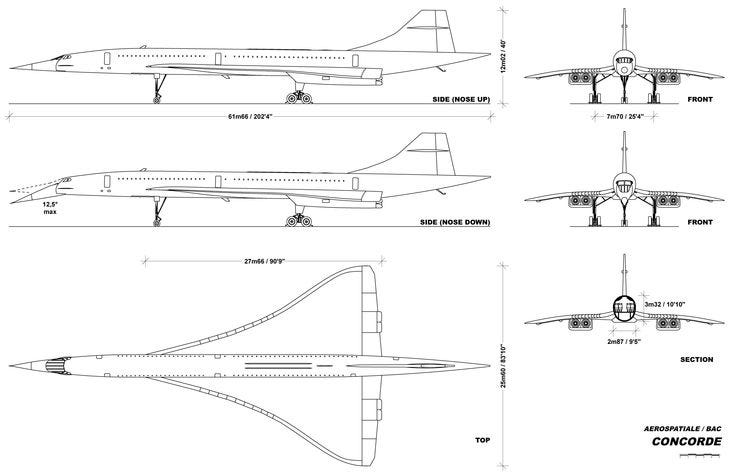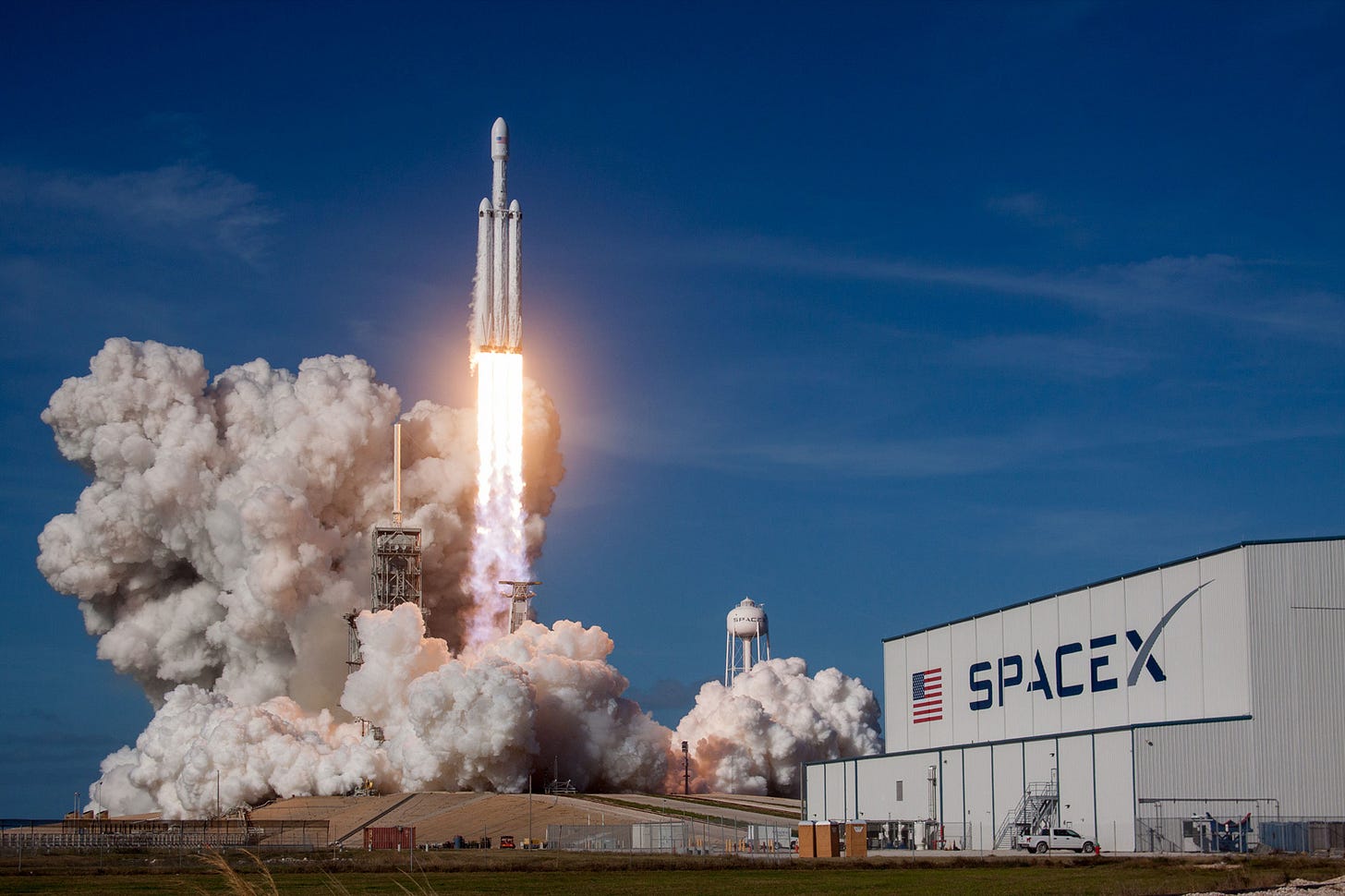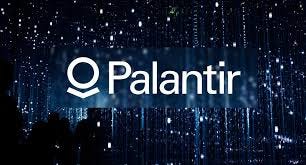AI is the only thing keeping the world from total stagnation (Peter Thiel)
Peter Thiel breaks down why AI might be our last shot at progress—and how everything else is collapsing
Peter Thiel just did the most mind-exploding, crazy interview I’ve ever listened to.
It’s so drastic, I still don’t know what to think—other than everyone should listen to it.
So I dissected it piece by piece and organized it to draw some conclusions.
This is what you cannot miss:
Hey, welcome to The AI Opportunity!
Every week you’ll get two things—fast:
What’s happening now (and where the money’s headed).
Who’s already building it (so you can invest, partner, or steal their playbook).
However, most of the content from this newsletter will be only accessible to the paid subscribers.
If you are serious about building or investing in AI, you can subscribe here:
If you want to sponsor The AI Opportunity or Product Market Fit email me to g@guillermoflor.com
1. We are stuck
Thiel still believes in his “stagnation thesis.” His point? We’ve exited a 200-year period of accelerating change—1750 to 1970 was all about breakthroughs in physical reality: faster ships, railroads, cars, planes. It culminated in the Concorde and Apollo.
But since then? Nothing.
We’ve made marginal progress in “the world of bits” (internet, mobile, AI), but that’s not the same as reshaping the physical world. In biotech or cancer research, for example, progress is either negligible or cloaked in over-specialization that makes it impossible to track.
As Thiel puts it: “The fact that it’s so hard to answer [whether we’re progressing] is itself cause for skepticism.”
2. Our future has been stolen—and it looks nothing like Back to the Future
Back to the Future II imagined 2015 as a world of flying cars, skateboards and radical transformation.
What we got instead was smartphones and cars that look the same.
Thiel’s kids watching 1985 on screen couldn’t tell it apart from today. “The world seems fairly similar.”
That’s the cultural proof of stagnation: if a time traveler from 1985 landed in 2025, they’d be confused by the phone, but everything else would feel familiar.
And the economic metric? Ask millennials: How are you doing compared to your parents? For most, the answer is worse.
3. We need to take more risks
Biotech is stuck. “We’ve made zero progress on dementia or Alzheimer’s in 40–50 years,” Thiel says. Scientists are trapped in a dead-end “beta-amyloid” theory that doesn’t work but keeps getting funded.
We need to radically increase the risks we’re willing to take in medicine, aging, and beyond.
Thiel wants a cultural return to the ambition of early modernity—Francis Bacon, Condorcet—when science promised immortality, not regulation.
He tells the story of taking his PayPal team to a “freezing party” in 1999, where people bought cryonics insurance. “That was the last generation who still believed they could live forever.”
4. The moment Peter Thiel realized Elon lost faith in going to Mars
In 2024, Thiel joked to Elon Musk that if Trump didn’t win, he’d leave the country. Elon replied: “There’s nowhere to go.”
That moment stuck with Thiel. Mars, once a symbol of civilizational escape and ambition, no longer felt like a real option—even to Musk.
Why? Because “the woke AI and the socialist government would follow you to Mars.” The dream of Mars as a frontier for freedom had died. It was no longer a science project—it had become a political one.
Thiel calls 2024 “the year Elon stopped believing in Mars.”
5. Will AI become stagnationist?
AI is the only real exception to our stagnation—but Thiel worries it might reinforce it.
He calls AI “more than a nothingburger, less than a total transformation.” Like the internet in the 1990s, it might boost GDP by 1% a year—but won’t restart the engines of human progress.
And worse: it could become conformist intelligence. Like a Netflix algorithm that generates infinite okay-ish content, AI might flood the world with blandness, not breakthroughs.
“If you don’t have AI, there’s nothing going on,” Thiel says. But he also warns: if AI becomes too “woke” or compliant, it will deepen the very stagnation it claims to solve.
6. Is AI hype—or is it transhumanism?
Thiel sees modern transhumanism as not ambitious enough.
It’s not that changing your body is weird—it’s that it’s pathetic compared to what early modern thinkers (and even Christianity) aimed for.
“Transhumanism is just changing your body. But you also need to transform your soul.”
He notes: the word nature never appears in the Old Testament. The Judeo-Christian story is about transcending nature—with God’s help.
The critique of today’s “trans” ideas, he argues, isn’t that they go too far. It’s that they don’t go far enough.
7. The risk of the one-world totalitarian state: how the Antichrist would take over the world
Thiel introduces his most apocalyptic idea: that existential risk (AI, nukes, bioweapons) is being used to justify global governance.
This leads to the ultimate form of stagnation: “a one-world state of the Antichrist.”
The logic is seductive: to avoid destruction, centralize control. Nuclear weapons? A global authority must manage them. Dangerous AI? Global compute regulation.
Thiel’s framing:
The atheist slogan = “One world or none.”
The Christian framing = “Antichrist or Armageddon.”
The twist? The Antichrist doesn’t come with innovation. He comes with regulation. He offers “peace and safety”—and people submit.
8. Is Peter Thiel building the tools for the Antichrist?
Thiel’s critics could argue: if anyone’s enabling global surveillance and control, isn’t it Thiel himself—via Palantir and military tech investments?
He acknowledges the irony. He doesn’t believe he’s doing that, but concedes that many of the tools he’s helped build could be used that way.
He warns that we’re already ruled—softly—by global regulators. The FDA doesn’t just control drugs in the U.S., but worldwide. Same with the Nuclear Regulatory Commission.
“Nuclear power was supposed to be the technology of the 21st century,” he says. “And it somehow has gotten off-ramped all over the world.”
9. Are we already living under a moderate rule of the Antichrist?
Thiel floats a chilling thought: what if the Antichrist isn’t a coming tyrant—but the mild technocracy we already live in?
50 years of “peace and safety” have come at the cost of progress.
He cites 1 Thessalonians 5:3: “While people are saying, ‘Peace and safety,’ destruction will come on them suddenly…”
Still, he insists we have agency. He rejects Calvinism and determinism.
“There’s a huge scope for human freedom. Don’t wait for the lion to eat you.”
Final thought:
This isn’t a neat, polished worldview. Thiel admits his thinking is “schizophrenic,” conflicted, unfinished.
But that’s what can make it it valuable. It’s a raw interrogation of the modern condition: progress, collapse, immortality, stagnation, and power—all tangled together.
I’m still trying to wrapp my head around it but would like to know your thoughts!
🧠 FAQs: Peter Thiel’s Viral Interview on AI, Stagnation, and the Future
1. What is Peter Thiel’s stagnation thesis?
Peter Thiel argues that technological and economic progress has slowed dramatically since around 1970. While we’ve advanced in software and the digital world, we’ve made little real-world progress in fields like transportation, energy, and biotech. He believes we’ve exited a 200-year period of accelerating innovation and are now largely stuck.
2. Why does Peter Thiel say the future looks nothing like Back to the Future?
Thiel uses Back to the Future II as a metaphor for our lost ambition. The film envisioned flying cars and radical change by 2015. In reality, 2025 looks shockingly similar to 1985—aside from smartphones. To Thiel, that’s cultural proof of stagnation.
3. Why does Peter Thiel think biotech is failing?
Thiel believes biotech has been in a dead zone for decades, especially around diseases like dementia and Alzheimer’s. He criticizes the medical research establishment for clinging to failed theories like beta-amyloid and being unwilling to take bold scientific risks.
4. What did Peter Thiel say about Elon Musk and Mars?
Thiel says that in 2024, Elon Musk stopped believing in Mars—not as a science project, but as a political escape. He realized, according to Thiel, that even on Mars, “the woke AI and socialist government would follow you.” The dream of Mars as a civilizational reboot had died.
5. Does Peter Thiel believe AI can end stagnation?
He’s cautiously optimistic. Thiel says AI is “more than a nothingburger, less than a total transformation”—comparing it to the internet in the 1990s. He warns it could become “stagnationist” if it reinforces conformity rather than challenging it.
6. Is Peter Thiel a transhumanist?
Thiel critiques modern transhumanism as not ambitious enough. He believes the goal shouldn’t just be physical transformation (e.g. body modifications), but the transformation of the soul. He ties this to a deeper, even religious, vision of human potential rooted in overcoming nature.
7. What does Peter Thiel mean by the 'Antichrist' and global control?
Thiel warns that existential threats—like nuclear war, AI, or climate collapse—are used to justify centralizing power through global governance. He suggests that this could lead to a “one-world totalitarian state,” which he provocatively links to the biblical Antichrist.
8. Does Peter Thiel think he's building the tools for the Antichrist?
Thiel acknowledges the irony that some of the tools he’s funded—like Palantir and surveillance tech—could be misused by authoritarian regimes. He doesn’t believe he’s enabling that future, but admits it’s a risk worth thinking about.
9. Are we already living under a mild version of the Antichrist?
Possibly, says Thiel. He suggests we may already live under a technocratic regime obsessed with “peace and safety” at the expense of progress and freedom. He cites global regulators like the FDA and NRC as examples of soft totalitarianism.
10. What is Peter Thiel’s solution to stagnation?
Take more risks. Embrace bold science. Culturally revive the ambition of early modernity. Thiel believes the only way out is forward—via decentralization, disruption, and courage to act before it’s too late.








